The types of pergolas based on style are freestanding pergolas, connected pergolas, arched pergolas, louvered pergolas, and awning pergolas. On the other hand, the kinds of pergolas, depending on the material, include a wood pergola, vinyl pergola, aluminum pergola, and steel pergola, among others. The cost of erecting a pergola can range from $3,000 to $12,000, depending on the size and material chosen.
What is a Pergola?
A pergola is a wall-less wide-open structure that has four support beams and a fancy roof design, such as a lattice. Pergolas normally don’t contain any protective roof as their major goal isn’t to shield their users, unlike other garden additions. Alternatively, you may place screens on the walls or top of your pergola for shade or protection from exterior elements.
Types of Pergola
Pergolas from most manufacturers are substantially customizable, so your form and size possibilities are infinite. Following are some fundamental styles:
Freestanding Pergola
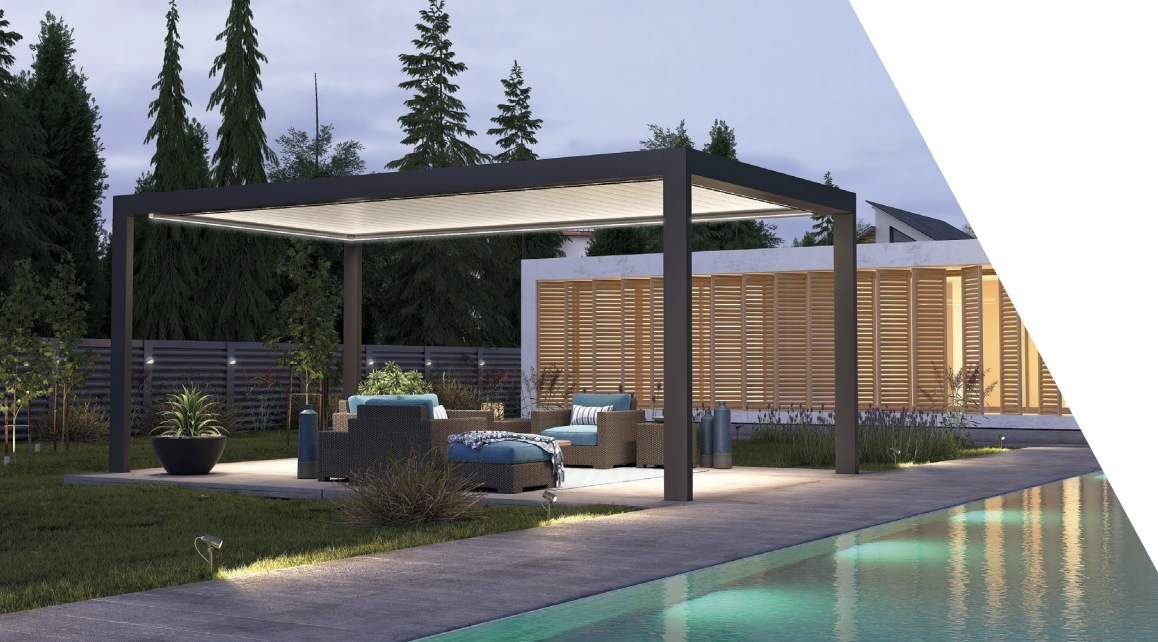
A freestanding pergola is precisely what it suggests: a pergola that stands alone as a landscape piece separate from your home. You may use this style of pergola near the pool, in your garden, or to build an outdoor living space at a distance from your house.
Attached Pergola
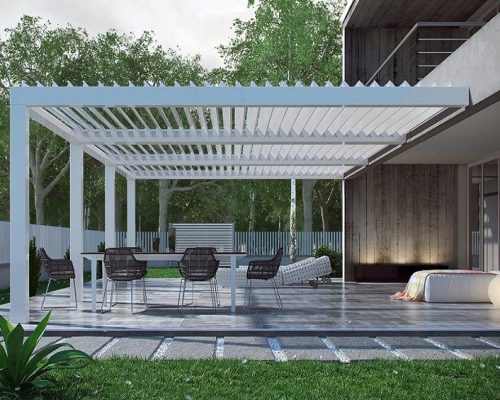
With this design, one side of the pergola is joined directly to your home’s wall. You may use this type to cover a place attached to your house, such as a deck or patio. A linked pergola may give an outdoor living space the sense of an extension of an internal room instead than a unique feature.
Arched Pergola
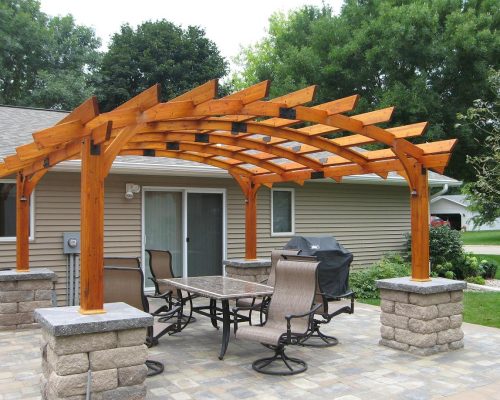
Arching pergola is a fantastic solution! It gives a beautiful style with enough covering from the sun while still allowing airflow to keep you comfortable in hot weather. Additionally, it’s straightforward to install and maintain. With an arched pergola, you’ll have a gorgeous outdoor living area lasting for years.
Awning pergola
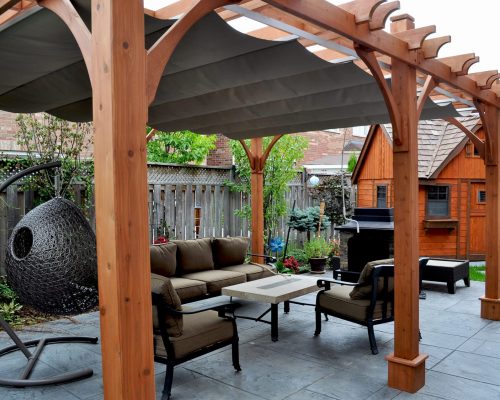
Tiny, awning-type pergolas stand straight onto the wall and don’t require columns or posts for support. For beauty and shade, you may put an awning pergola over a window, entrance, or garage. You may also add blooming climbing vines or another sort of cover for added shade.
Louvered pergola
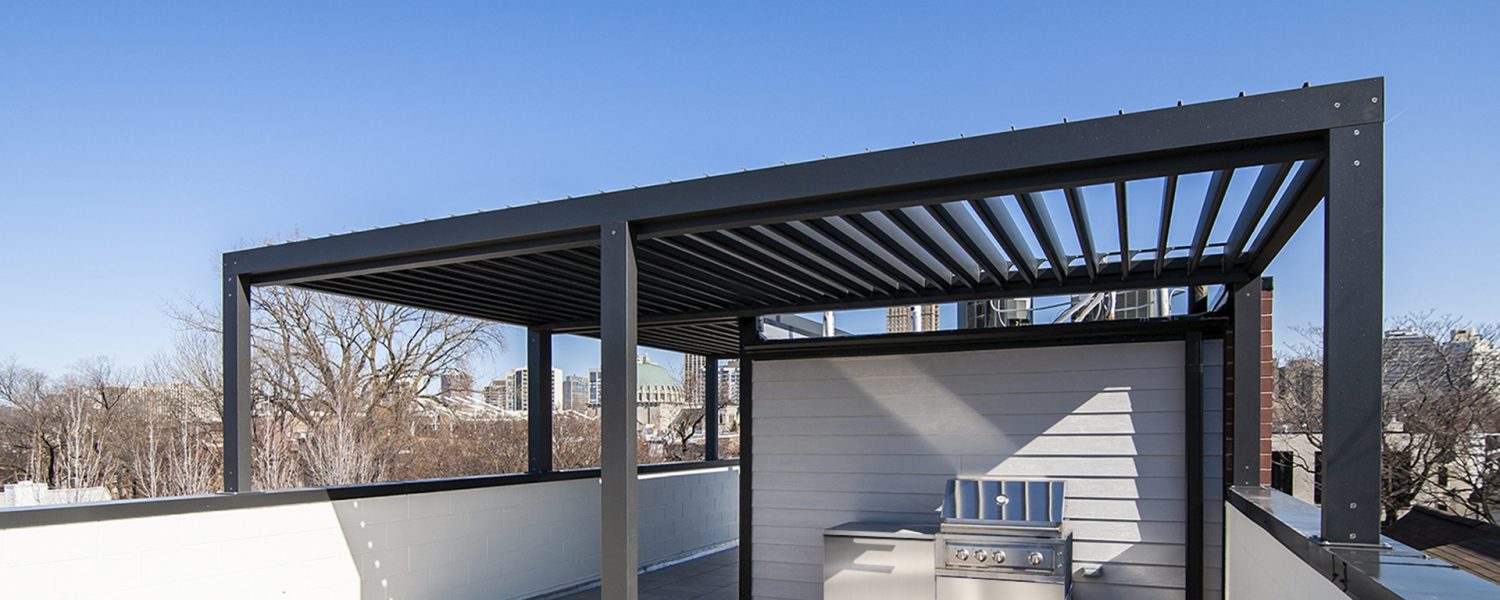
In place of ordinary slats, a louvered pergola has moveable louvers as rafters. You may open and close the louvers to provide more or less sunlight as necessary. There are manual and automated variants of louvered pergolas.
Types of Pergola Based On Materials
Pergolas don’t just differ in appearance; they are also made of diverse materials. The material your pergola is composed of impacts how long it will endure, how much upkeep it will take over the years, and how much it will cost.
Aluminum pergola
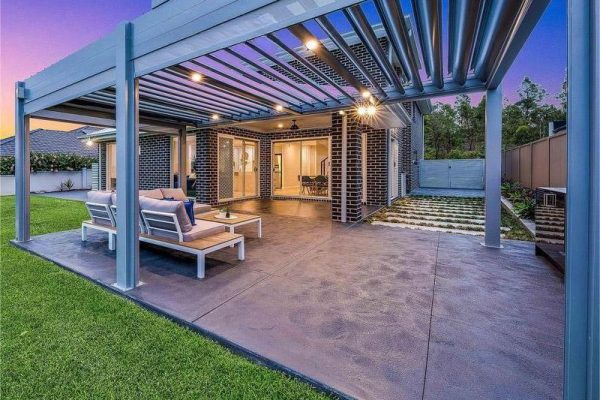
Aluminum is a fantastic alternative if you want a more contemporary pergola. Generally, aluminum pergolas have attractive designs and clean lines that integrate well with modern landscapes and architecture. Like vinyl, aluminum doesn’t need much care as it isn’t subject to rust.
That’s why aluminum pergola is the most popular product worldwide.
Fiberglass pergola
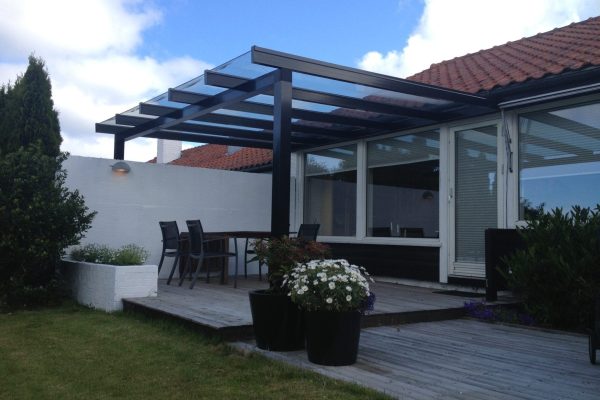
Fiberglass is low-maintenance, weather-resistant, and long-lasting. You may even paint it any color to match your environment since wood keeps paint well. Since it won’t rust or corrode, you won’t have to bother about cleaning or treating your pergola regularly.
Fiberglass could be the most convenient alternative for your pergola, but remember that it is also possibly the most expensive.
Wood Pergola
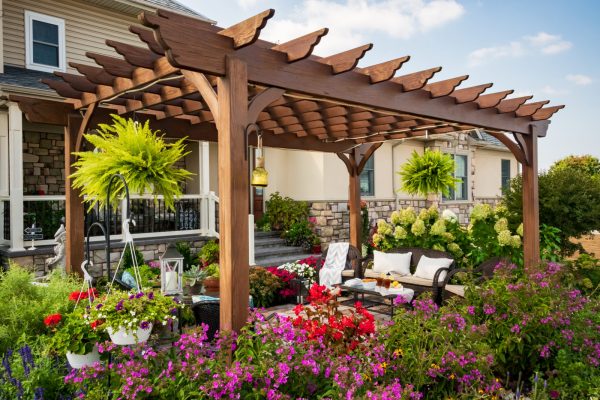
Wood is undoubtedly the most frequent (and cheapest) material for pergolas. You will probably use wood if you create one from raw materials. Cedar pergolas are most common since they offer the most out of your money, while redwood is a superior alternative.
Vinyl pergola
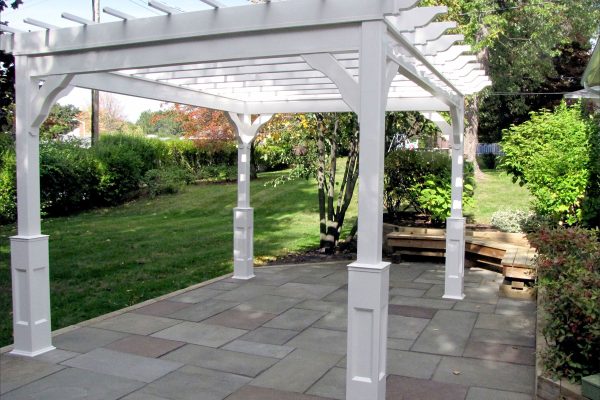
Vinyl pergolas are incredibly low-maintenance as compared to wood. They last for several years with just periodic power-washing. Vinyl might be easy to maintain, but the disadvantage is high-quality vinyl can get considerably expensive.
Steel Pergola
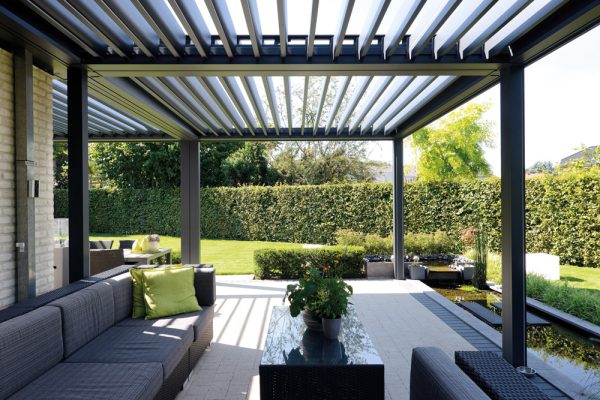
Steel is another material that may lend your pergola a modern design, however, steel likely has more of a heavy-duty, industrial character than aluminum. That could be because steel really is significantly heavier than aluminum, making it more robust and solid.
But, steel can rust when it’s constantly exposed to humidity and rain, so you will have to take rust prevention steps.
Concrete pergola
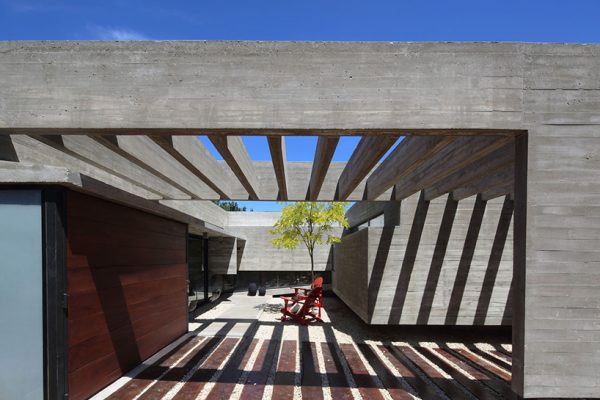
Specially poured or precast concrete pillars may lend your pergola a classic aspect evocative of Ancient Rome or Greece. Instead, construct a concrete pergola with clean, geometric lines for a more sophisticated appeal.
Concrete will endure virtually forever and only need occasional cleaning and mending of chips and cracks.

